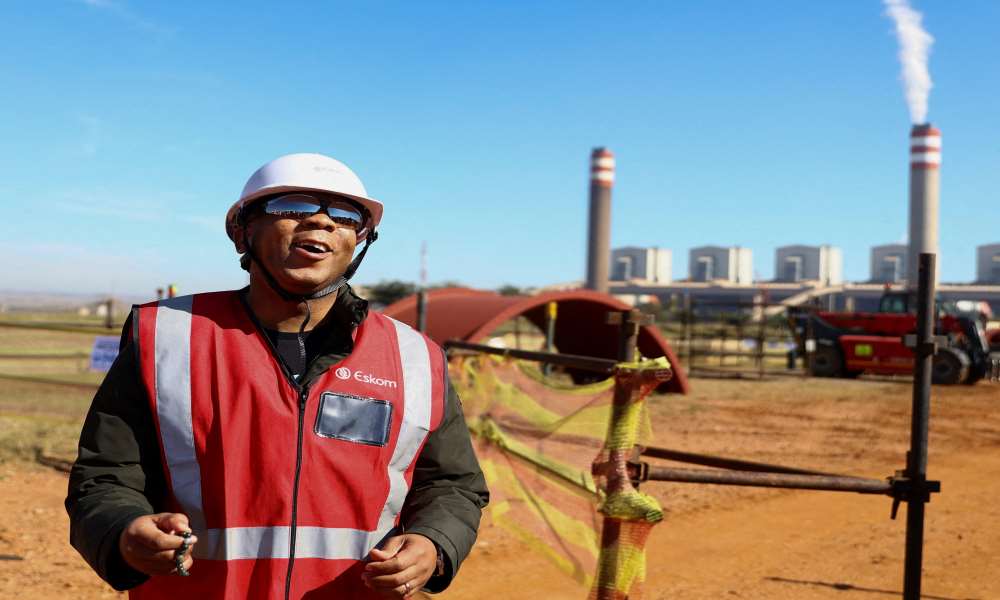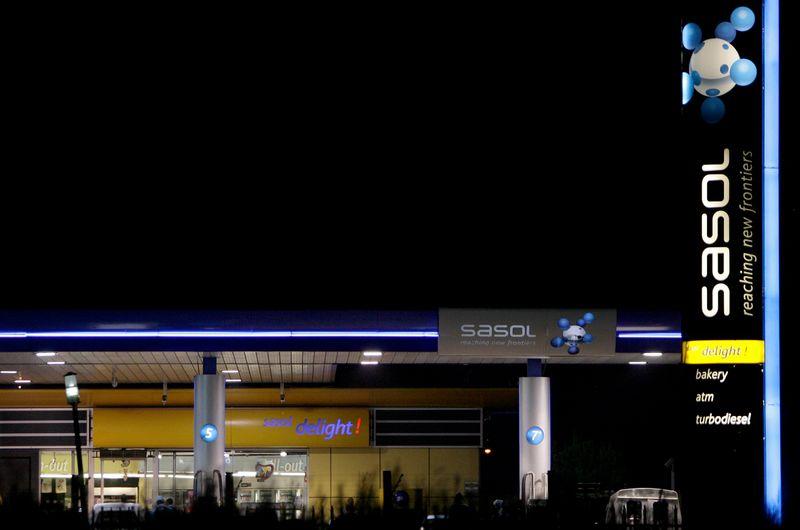Sasol, BMW and Anglo ink new agreement
For green hydrogen
Sasol will act as the supplier of green hydrogen to Anglo American and BMW, focusing on commercial and passenger fleet transformation.
Multi-national companies Sasol, BMW and Anglo American signed a new agreement related to their work on the use of green hydrogen in transport.
Green hydrogen is produced when water is split into oxygen and hydrogen, powered by renewable energy like wind or solar. The green hydrogen is then considered a low-carbon energy source, compared to fossil fuels like coal or oil. Its use as an energy or fuel source is of particular interest for industries that have difficulty in reducing emissions, such as steel and cement manufacturing or aviation and other modes of transport.
The memorandum of cooperation between the three companies was inked on Monday when South Africa's second Green Hydrogen Summit took place, an overview document of the summit indicated.
"Sasol will act as the supplier of green hydrogen to Anglo American and BMW, focusing on commercial and passenger fleet transformation," the document read.
Companies are increasingly looking for ways to reduce emissions in production processes, especially as the European Union intends to implement its Carbon Border Adjustment Mechanism – a tax on imports based on their carbon content.
The summit will also see three coastal provinces – the Northern Cape, Western Cape, and Eastern Cape – enter into a memorandum of understanding to collaborate in developing an inter-regional green hydrogen strategy. This includes developing shared logistics, infrastructure and manufacturing facilities.
Potential
Electricity Minister Kgosientsho Ramokgoa, during a media briefing on Sunday, said that the cooperation agreement will be important to "elevate the potential of green hydrogen in the country" in that it "transcends administrative and political borders."
The memorandum of understanding builds on one that was signed by the Western Cape and Northern Cape at the inaugural Green Hydrogen Summit.
The Western Cape Director General, Dr Harry Malila, said the MoU deals with how the provinces need to support each other in developing green hydrogen capacities. There are still aspirations to collaborate with Namibia to develop a regional green hydrogen corridor spanning the two countries.
In his address, Ramokgopa also spoke to the status of the Green Hydrogen Commercialisation Strategy, which is in the "last stages" of approval and in the process of being submitted to Cabinet. "I am confident it will be approved," Ramokgopa said.
Joanne Bate, chief operations officer of the Industrial Development Corporation, explained that the plan focuses on building markets for green hydrogen. Bate is also the chair of the panel that drove the development of the Green Hydrogen Commercialisation Strategy.
Market
There is a domestic market for green hydrogen, especially in heavy industries such as steel and transport – specifically vehicles like trucks.
"The sooner we can reach commercial scale in SA, the sooner we can accelerate the use of green hydrogen within our heavy industry as a decarbonisation and reindustrialisation opportunity," said Bate.
South Africa's coastal regions present a huge potential for producing green hydrogen cost-effectively, he added. Existing infrastructure can be leveraged, such as ports and renewable energy resources like wind and solar and water – this is desalinated seawater that can be used to produce green hydrogen.
Ramokgopa noted the "prohibitive" costliness of green hydrogen, saying it would be unlikely to feature in the updated Integrated Resources Plan (IRP). "As we are reconfiguring it, in the next IRP, it is unlikely green hydrogen will find expression. We must resolve issues of cost," he said. The IRP considers the cost of energy for the end user, which is reflected in tariffs.
"The maturity of the technology (of green hydrogen) is not as advanced. Therefore, costs elements associated with green hydrogen are more prohibitive," he emphasised.
For now, green hydrogen projects have not reached financial close. Most of them are at pre-feasibility stages. "It will take a degree of investment to accelerate them along the project life cycle to get them into implementation," he said.
But Ramokgopa said he is not ruling out green hydrogen being part of the country's energy mix in future. The summit will take place over two days in Century City, Cape Town.-Fin24
Green hydrogen is produced when water is split into oxygen and hydrogen, powered by renewable energy like wind or solar. The green hydrogen is then considered a low-carbon energy source, compared to fossil fuels like coal or oil. Its use as an energy or fuel source is of particular interest for industries that have difficulty in reducing emissions, such as steel and cement manufacturing or aviation and other modes of transport.
The memorandum of cooperation between the three companies was inked on Monday when South Africa's second Green Hydrogen Summit took place, an overview document of the summit indicated.
"Sasol will act as the supplier of green hydrogen to Anglo American and BMW, focusing on commercial and passenger fleet transformation," the document read.
Companies are increasingly looking for ways to reduce emissions in production processes, especially as the European Union intends to implement its Carbon Border Adjustment Mechanism – a tax on imports based on their carbon content.
The summit will also see three coastal provinces – the Northern Cape, Western Cape, and Eastern Cape – enter into a memorandum of understanding to collaborate in developing an inter-regional green hydrogen strategy. This includes developing shared logistics, infrastructure and manufacturing facilities.
Potential
Electricity Minister Kgosientsho Ramokgoa, during a media briefing on Sunday, said that the cooperation agreement will be important to "elevate the potential of green hydrogen in the country" in that it "transcends administrative and political borders."
The memorandum of understanding builds on one that was signed by the Western Cape and Northern Cape at the inaugural Green Hydrogen Summit.
The Western Cape Director General, Dr Harry Malila, said the MoU deals with how the provinces need to support each other in developing green hydrogen capacities. There are still aspirations to collaborate with Namibia to develop a regional green hydrogen corridor spanning the two countries.
In his address, Ramokgopa also spoke to the status of the Green Hydrogen Commercialisation Strategy, which is in the "last stages" of approval and in the process of being submitted to Cabinet. "I am confident it will be approved," Ramokgopa said.
Joanne Bate, chief operations officer of the Industrial Development Corporation, explained that the plan focuses on building markets for green hydrogen. Bate is also the chair of the panel that drove the development of the Green Hydrogen Commercialisation Strategy.
Market
There is a domestic market for green hydrogen, especially in heavy industries such as steel and transport – specifically vehicles like trucks.
"The sooner we can reach commercial scale in SA, the sooner we can accelerate the use of green hydrogen within our heavy industry as a decarbonisation and reindustrialisation opportunity," said Bate.
South Africa's coastal regions present a huge potential for producing green hydrogen cost-effectively, he added. Existing infrastructure can be leveraged, such as ports and renewable energy resources like wind and solar and water – this is desalinated seawater that can be used to produce green hydrogen.
Ramokgopa noted the "prohibitive" costliness of green hydrogen, saying it would be unlikely to feature in the updated Integrated Resources Plan (IRP). "As we are reconfiguring it, in the next IRP, it is unlikely green hydrogen will find expression. We must resolve issues of cost," he said. The IRP considers the cost of energy for the end user, which is reflected in tariffs.
"The maturity of the technology (of green hydrogen) is not as advanced. Therefore, costs elements associated with green hydrogen are more prohibitive," he emphasised.
For now, green hydrogen projects have not reached financial close. Most of them are at pre-feasibility stages. "It will take a degree of investment to accelerate them along the project life cycle to get them into implementation," he said.
But Ramokgopa said he is not ruling out green hydrogen being part of the country's energy mix in future. The summit will take place over two days in Century City, Cape Town.-Fin24





Kommentaar
Republikein
Geen kommentaar is op hierdie artikel gelaat nie